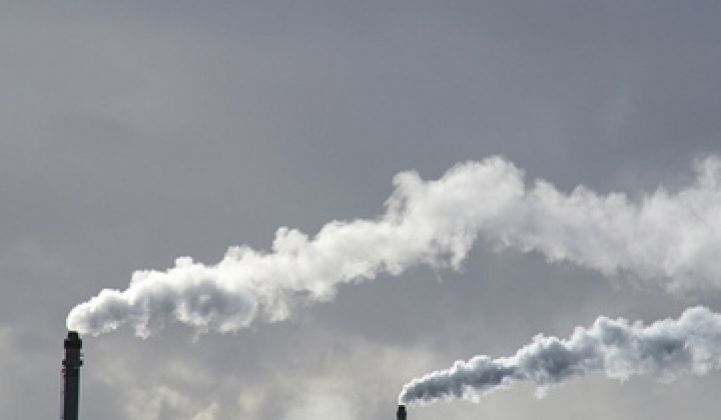NEWS ANALYSIS -- Treaties and international agreements usually fall into one of three categories:
1. Successful arrangements like the Congress of Vienna, the Marshall Plan and the Bretton-Woods Conference that set the world upon a new and stable path that lasts for years.
2. Somewhat forgettable ones like the Patent Cooperation Treaty or the Convention on Psychotropic Substances that achieve some progress but essentially serve to remind signatory nations that they passed the same national laws.
3. Outright disasters like Munich, Versailles and the Smoot-Hawley Tariff Act (and the retaliatory laws that followed it its wake) that set the stage for further conflict and turmoil.
Some strong advocates say that the 15th Conference of Parties to the UN Framework Convention on Climate Change, or Cop15, taking place next week, could have fallen in the first category. Failure to come to grips with climate change, they add, will doom the world to ecological disaster. History also bolsters their argument. Over the last 100 years, the U.S. and its citizens have created national parks, helped stop acid rain, protected endangered species, forced car makers to adopt technologies for reducing emissions and curbed the energy that flows into household appliances without swirling into anarchy.
Critics – a list that weirdly enough includes Chuck Norris – argue that an agreement would hamper the U.S. economy, presumably because it would lead to unemployed Americans getting jobs installing solar panels or energy storage systems that may not come with complete health insurance. Better to wait for the whole package.
In reality, Cop15 likely falls into the middle category. It is a very good idea and the world needs to come to grips with carbon emissions and energy consumption, but a binding agreement at this point is overambitious. The good news is that most national governments, their citizens and the local business communities understand the benefits and feasibility of a green economy. Critics exist, but the majority opinion around the world is to go green. The agreements-in-principle between China and the U.S. underscore the convergent, but independent directions of the two countries.
The bad news is that flexible consensus arrangements can sometimes stretch into agreements to agree to confer about somewhere to have lunch with delays and economic circumstances retarding progress along the way. An agreement would accelerate the process. Unfortunately, two ingredients often required for a successful treaty seem to be lacking.
The first is a communality of interests. Unless participating nations have outlined complimentary goals, a treaty likely will fail. Opinions on what to include in a climate treaty vary widely. Many in the U.S. and Europe want to see emerging nations adopt standards. Emerging nations like China and India, meanwhile, balk. Most of the emissions in the atmosphere were put there by established nations over the last century, emerging nations like to point out. The U.S, with three percent of the world's population, consumes 25 percent of the oil.
Besides, the emissions generated in China largely exist because they are producing goods for export to the West, Chinese negotiators like to point out. China ultimately may use its status as the largest creditor to the U.S. to get its way. Emerging nations understand this will create jobs, but they don't want their hands tied.
Middle East nations, meanwhile, state that carbon taxes and restrictions would harm their economies and thus they argue that they should get compensation. Don't laugh. Fears that Dubai might default on its debt unsettled stock markets worldwide over the weekend. Expect to hear some U.S. financiers argue that the patriotic thing will be to buy oil and help prop up a trading partner.
The second is exhaustion. Look at the list above again. The Congress of Vienna of 1819 came as a way to resolve the turmoil unleashed by the French Revolution of 1789 and the Napoleonic Wars (1799–1815). Europe had been reduced to a muddy battlefield during those 26 years. The Marshall Plan and Bretton Woods came at the end of World War II: ditto, along with destruction and devastation across Europe.
Compare that to Versailles or Munich. Germany did not suffer the same sort of devastation and destruction as France did in World War I. Thus, the big lie-that Germany had been sold out by negotiators-was much easier to believe. Similarly, Munich came at a time when Germany thought destiny was at its side. England, France and the U.S. just wanted to be left alone.
This is the ominous part. Are we going to need a disaster before action takes place? It took Pearl Harbor to get the U.S. into World War II; then again, the publication of The Jungle helped clean up the food industry.
Richard Smalley, the former professor of Chemistry from Rice University and the Nobel winner, told me in a 2004 interview that, as time passed and studies piled up, even high-level oil execs were beginning to accept climate change. Still, he added, humanity often doesn't move until forced.
"My guess is that this won't become a big issue unless there is a thalidomide event," Smalley said. "We will have to see in the rear-view mirror that we are past the peak in worldwide oil production."
Smalley died a few months later.
Photo via Flickr/Creative Commons.



